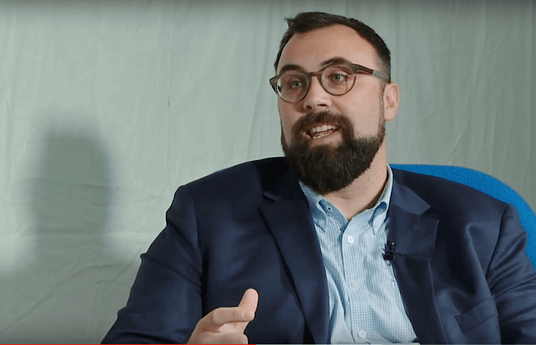Across the globe, the COVID-19 pandemic has turned everyone’s life upside-down. This includes anyone involved in public schooling — students, parents, or educators. The pandemic has exposed gross inequities in public education systems, and the power of teacher networks and leadership from, by, and for teachers. Teachers, as they physically distance from their students and each other, they have double-down on their social networks to spread innovations in teaching and learning as well as family engagement. It is time for school systems, worldwide, to capitalize on and serve the kind of teacher leadership needed to place students at the centre of their learning.
Our recommendations are grounded in the science of learning, the research on how teachers spread their expertise and lead, and evidence of how classroom experts are collaborating as well as how the world’s medical expertise is foreshadowing the future. We call for three waves of action – The Now, The Dance (part past/part future) and The Transformation.
The Now: We must begin by strengthening existing systems of teacher leadership — identifying how teachers are leading and recognizing them in any number of ways. School system leaders will serve a very important role in helping teachers spread their expertise and have their evidence-based stories inform colleagues as well as parents and policy leaders.
- Administrators conduct online surveys to document how teachers innovated in the time of school closures.
- Schools offer teachers opportunities to create new programs to address social-emotional as well as academic needs of students as they return to school.
- Government improves internet access and ensures every child and family has access to hardware, software, and broadband needed to participate fully with educators.
The Dance: Educators will rethink people and programs and accelerate the development of learning teams that are inquiry-driven and spurred by the spread of affinity networks.
- School systems create and operationalize teacher leadership standards and formally recognize how classroom practitioners spread their expertise to each other.
- School system reallocate time and teaching schedules and calendars in order to increase teacher-led inquiry- up to 10 hours a week to drive action and innovations.
- School systems use teacher leadership to reinvent assessment, and transcend current standardized testing for sorting and grading to pivot toward more useful, improvement-oriented accountability system.
The Transformation: A pre-primary-to-higher education system is unified with other community-based organizations, offering physical and social-emotional health supports, afterschool programs, and workforce development training as school schedules and calendars are overhauled so teachers can teach as well as lead.
- Government offers incentives to harness cross-sector learning teams to build networks of pre-primary, primary, secondary school, university, community and technical college, and other professionals that centre brick and mortar schools as hubs of their communities;
- School systems recognize teacher leadership, through compensation and workplace conditions, as central to creating a coherent system of teaching, learning, and caring.
- Government support alignment of resources for cross-sectoral partnerships that use data, evidence, and technology to support a seamless Birth to School to Career strategy.
COVID-19 has made painfully clear: Public schools everywhere face a future of rapid change, intensifying complexity, and growing uncertainty. It is time for us to connect, learn, and lead together with teachers at the forefront of the transformation.
The above article is an excerpt taken from the report The Now, The Dance, The Transformation written by Barnett Berry, Armand Doucet, and Ben Owens. You can aread the full report here.
About the Authors
Armand Doucet M.S.M., M.Ed. is one of the world’s foremost pracademics and teachers in education for this Digital Age. He is a sought- after leader, inspirational speaker, coach, columnist, author of Teaching Life: Our Calling, Our Choices, Our Challenges in Routledge’s Best-selling Leading Change Series with Pak Tee Ng, Andy Hargreaves, Michael Fullan etc. He is also the lead author of the best-selling book Teaching in the Fourth Industrial Revolution: Standing at the Precipice (Routledge 2018). He has spoken to tens of thousands of teachers on every continent and key international organizations such as UNESCO, WEF and OECD. He has received the Governor General Award for Teaching Excellence in History (2017), Canadian Prime Minister’s Award for Teaching Excellence (2015), is a Meritorious Service Medal Recipient Governor General of Canada, is an Apple Distinguished Educator, Teach SDGs Ambassador, and has recently been nominated in the Top 50 for the Global Teacher Prize. He is also a proud member of the HundrED Academy.
Barnett Berry is a research professor at the University of South Carolina where he lead ALL4SC—where the assets of the entire university are marshalled to serve the needs of high need public school communities. He was founder of the Center for Teaching Quality, a non-profit incubator of teacher leadership, working with 1000s of teachers from across the globe. For over 40 years Barnett has supported, as researcher and advocate, the professionalization of teaching to advance a more equitable public education system and improved outcomes for every student. He has published widely in both peer-review and trade journals and is author of Teaching 2030 as well as Teacherpreneurs: Innovative Teachers Who Lead Without Leaving.
Ben Owens worked as an engineer for 20 years before becoming a math and physics teacher for 11 years at a Teacher Powered and wall-to-wall Project-Based Learning school in rural Appalachia. After co-authoring the book “Open Up, Education!” in 2018, Ben founded the nonprofit, Open Way Learning, and now helps schools create the cultural conditions for localized, learner-centred innovation. Ben was the 2017 Bridging the Gap Distinguished Teacher in STEM Education; the 2016 North Carolina Center for Science, Mathematics, & Technology Outstanding 9-16 Educator; a member of the Bill & Melinda Gates Foundation Teacher Advisory Council; and a Hope Street Group National Teaching Fellow. He is on the National Faculty for PBLWorks, a member of Transcend’s Yellow Hats League, and is an Open Organization Ambassador.


